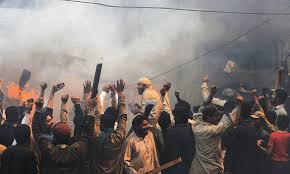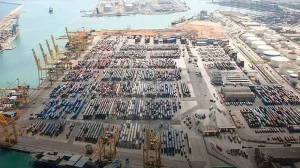Extremism in Pakistan has evolved into a pressing national challenge, deeply rooted in socio-political, religious, and economic complexities. Over the past few decades, Pakistan has witnessed the alarming rise of radical ideologies that not only threaten internal peace but also damage its international reputation. Despite numerous military operations and counter-terrorism policies, extremism continues to grow in various forms, affecting all segments of society.
Historical Roots of Extremism in Pakistan
The problem of extremism in Pakistan can be traced back to the Afghan Jihad in the 1980s. During this time, Pakistan became a frontline state, hosting millions of Afghan refugees and serving as a base for the Mujahideen with active support from Western powers and regional allies. While the war ended, the ideological infrastructure that was built to support it remained. Armed groups, religious seminaries, and foreign-funded networks gained ground and started influencing local politics and society.
Over time, these groups morphed into dangerous sectarian and militant outfits. The state’s earlier policy of selective tolerance allowed these elements to grow unchecked. The result was a society divided on ethnic, sectarian, and ideological lines, laying fertile ground for violent extremism.
Current Trends in Radicalization
Today, religious extremism in Pakistan is not limited to militant groups. It has seeped into educational institutions, political narratives, and even mainstream media. The rise of hate speech, online radicalization, and mob violence has created a culture of intolerance. Cases like lynching over blasphemy allegations, targeted killings of minorities, and hate sermons are not isolated events—they reflect a broader trend.
Social media has played a significant role in amplifying extremist ideologies. Unregulated platforms are often used to spread misinformation and recruit vulnerable youth into radical causes. This digital shift in extremism makes it harder to detect and combat.
Impact on Society and Economy
The consequences of extremism in Pakistan are far-reaching. Foreign investors hesitate to enter the Pakistani market due to concerns about law and order. Tourism suffers, businesses struggle, and educational institutions are forced to operate under fear. The youth, instead of engaging in constructive roles, are drawn toward divisive ideologies that promise identity, purpose, and belonging.
Communities in conflict-ridden areas face daily violence, displacement, and trauma. Minorities, including Shia Muslims, Christians, Hindus, and Ahmadis, often live under constant threat. The brain drain phenomenon has also accelerated, with professionals and intellectuals leaving the country in search of safer environments.
Counter-Extremism Measures and Their Effectiveness
Pakistan has taken several steps to curb extremism. Military operations like Zarb-e-Azb and Radd-ul-Fasaad targeted terrorist sanctuaries and dismantled networks. The National Action Plan (NAP) was introduced as a comprehensive policy to address radicalization, but its implementation has remained inconsistent.
Efforts to reform religious seminaries (madrassas) and promote interfaith harmony are ongoing but face resistance. Civil society and media must also play a more active role in countering extremist narratives and promoting tolerance.
However, experts believe that a purely security-based approach is insufficient. There is a need for education reform, economic opportunities, and inclusive governance to tackle the root causes of radicalization. Only a multi-pronged strategy that addresses social injustices and offers hope to marginalized communities can bring lasting peace.
The Way Forward
Combating extremism in Pakistan requires more than just military force. It demands a strong political will, genuine implementation of laws, and a national consensus on rejecting all forms of hate. Youth engagement programs, civic education, and promoting moderate voices in media and politics can significantly help in reshaping narratives.
Religious leaders must be empowered to counter extremist ideologies with peaceful interpretations. Law enforcement should act swiftly against hate speech, incitement to violence, and groups that exploit religion for political gains.
Read More: Big Boost for Pakistan’s Energy Sector as PIOL Joins ADNOC in Major Oil Deal
Conclusion
Extremism in Pakistan is a multidimensional issue that affects national security, economy, and societal cohesion. While progress has been made, much more is needed to root out the toxic ideologies that fuel intolerance and violence. Through collective efforts involving the government, civil society, and international partners, Pakistan can pave the way for a more peaceful and inclusive future.
Read More: Love Island Sparks Uproar Following Ace Greene Surprise Switch









